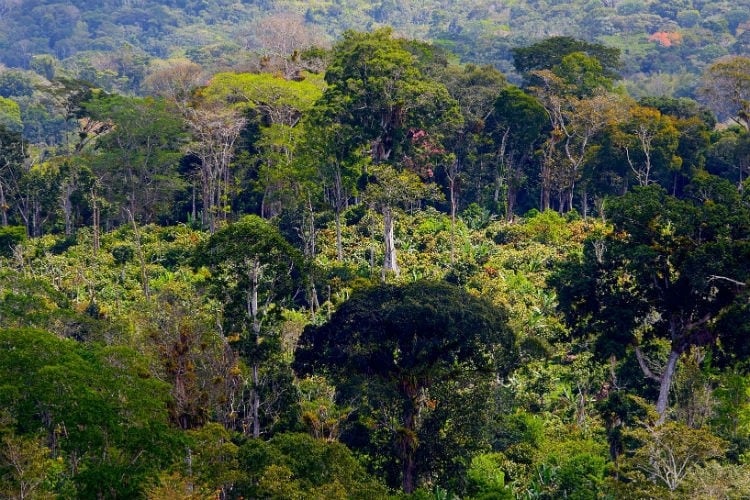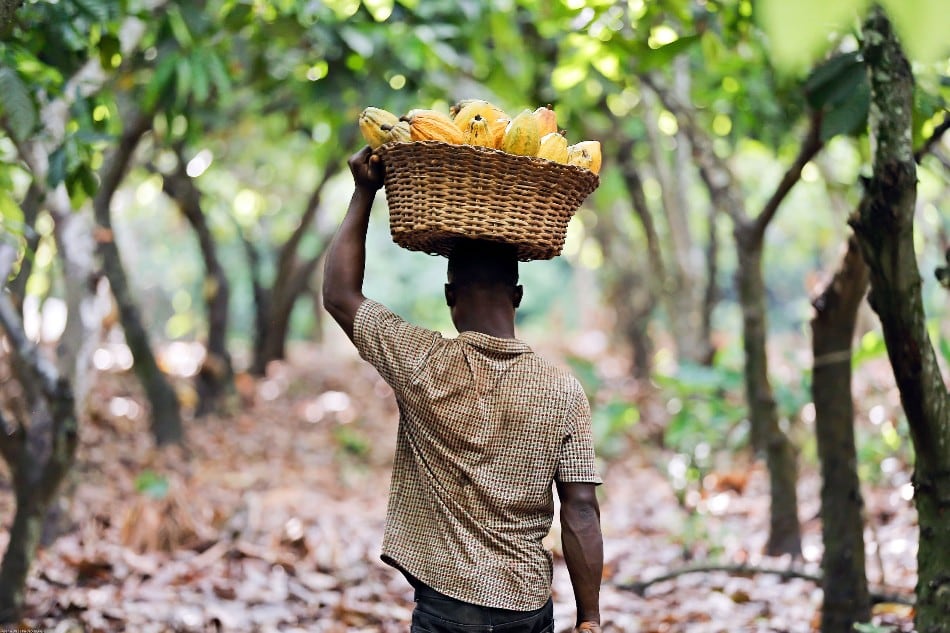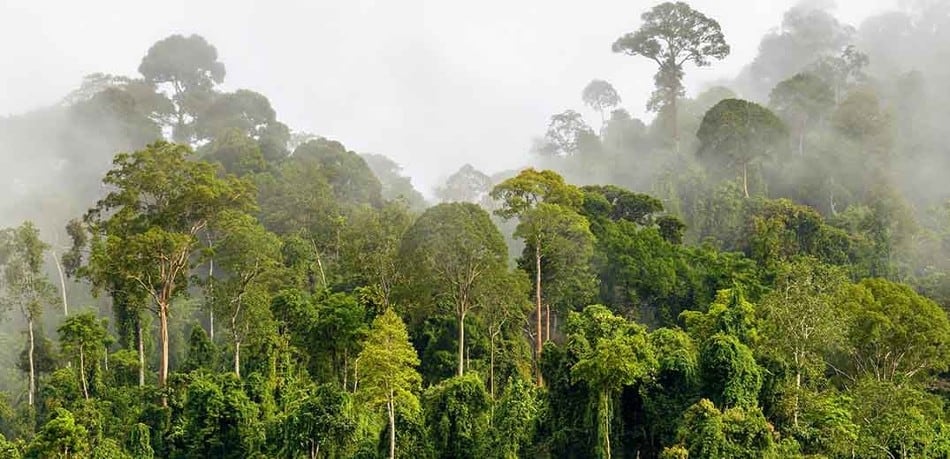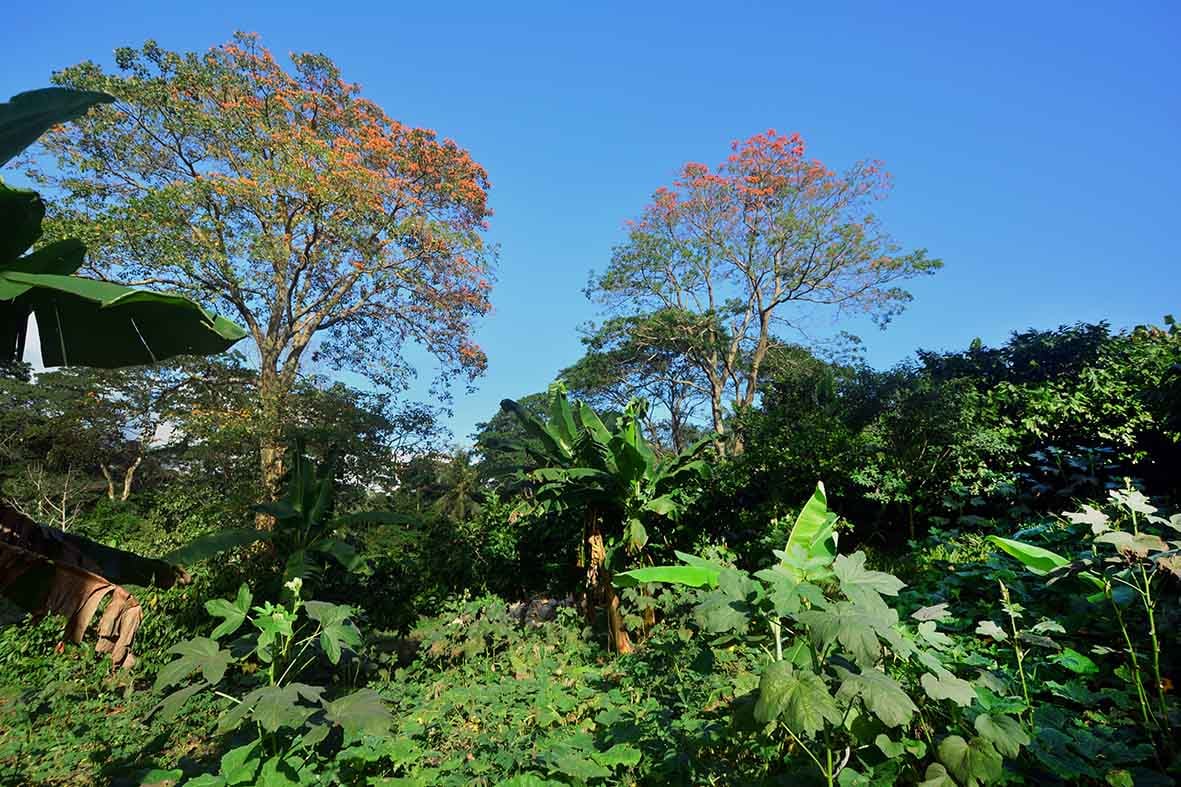Ongoing deforestation in Asia, Africa and Latin America is having a negative impact on people's livelihoods. This accelerates climate change and decreases biodiversity, the participants said in an opening statement. Laurent Tchagba, Cote d’Ivoire’s Minister of Water and Forests, also attended the meeting in Switzerland and expressed his conviction that the causes of deforestation are best tackled by working together as far as possible with all stakeholders concerned on the ground.
The participants, from very different fields such as business, NGOs, government, and academia, were informed that between 2010 and 2020, an average of 4.7 million hectares of forest were destroyed yearly worldwide. One of the main reasons for deforestation is the expansion of cocoa, coffee, palm and soy farms on agricultural land.
New EU regulation aims to prevent deforestation
The meeting was also convened as the European Union (EU) Deforestation-Free Products Regulation (EUDR) came into force. New framework conditions will apply to the import of coffee, cocoa, palm oil and soy into the EU from 2025. The regulation requires companies to prove that their supply chains do not contribute to the destruction or degradation of forests. To do this, they must identify the exact geographical coordinates of where the agricultural commodity is produced as part of their due diligence to ensure that their products do not contribute to deforestation or forest degradation.
The four sector initiatives discussed with representatives from politics, business, and civil society what the new EU regulation will mean for Switzerland and the commodity sectors concerned, what is already being done and what solutions are needed to ensure transparency and sustainability in the supply chains of these agricultural commodities.
Increased cooperation
Tchagba was also convinced of the importance of closer collaboration between the stakeholders: “We must tackle the source of deforestation and collaborate in depth with all the players concerned,” he said, giving examples of initiatives in Cote d’Ivoire that have been taken to conserve forests and regenerate forest cover.
Three areas for action
The participants agreed that Switzerland has already done a great deal in the four commodity sectors and that its commitment will continue regardless of the EU regulation. Even though the affectedness and preconditions in the four raw material sectors are different, the sector initiatives want to use the potential of joint measures to ensure sustainable supply chains – and defined three areas of action in which they want to cooperate in the future:
- Traceability: The joint further development and alignment of standards and the use of synergies in data management and data tools are essential for improved transparency, traceability and ultimately also sustainability impact. Orientation towards globally recognised sustainability standards strengthens the harmonisation process. In this context, new digital technologies are becoming increasingly important, representatives were told. “Sustainability standards like Fairtrade, the Roundtable on Sustainable Palm Oil and Rainforest Alliance support value chain actors to avoid deforestation by offering relevant and verified traceability data that preserves the identity of certified products along the supply chain. This data can help companies conduct deforestation due diligence risk assessments,” said Joshua Wickerham, speaker at the conference from the International Social and Environmental Accreditation and Labelling Alliance (ISEAL).
- Landscape approaches: the four sector initiatives are engaged in the development and implementation of landscape approaches to forest protection and restoration. Members of the initiatives strive to enable farmers to effectively adopt climate-smart agriculture practices to enhance biodiversity and resilience to climate change in sourcing regions.
- Investments: The transition to good, climate-friendly farming practices requires high investments in training, advisory services, plant material and financial compensation for small-scale producers, especially in the beginning. Therefore, the potential of public-private partnerships, climate funds and local financial resources should be better utilised and optimally coordinated.




